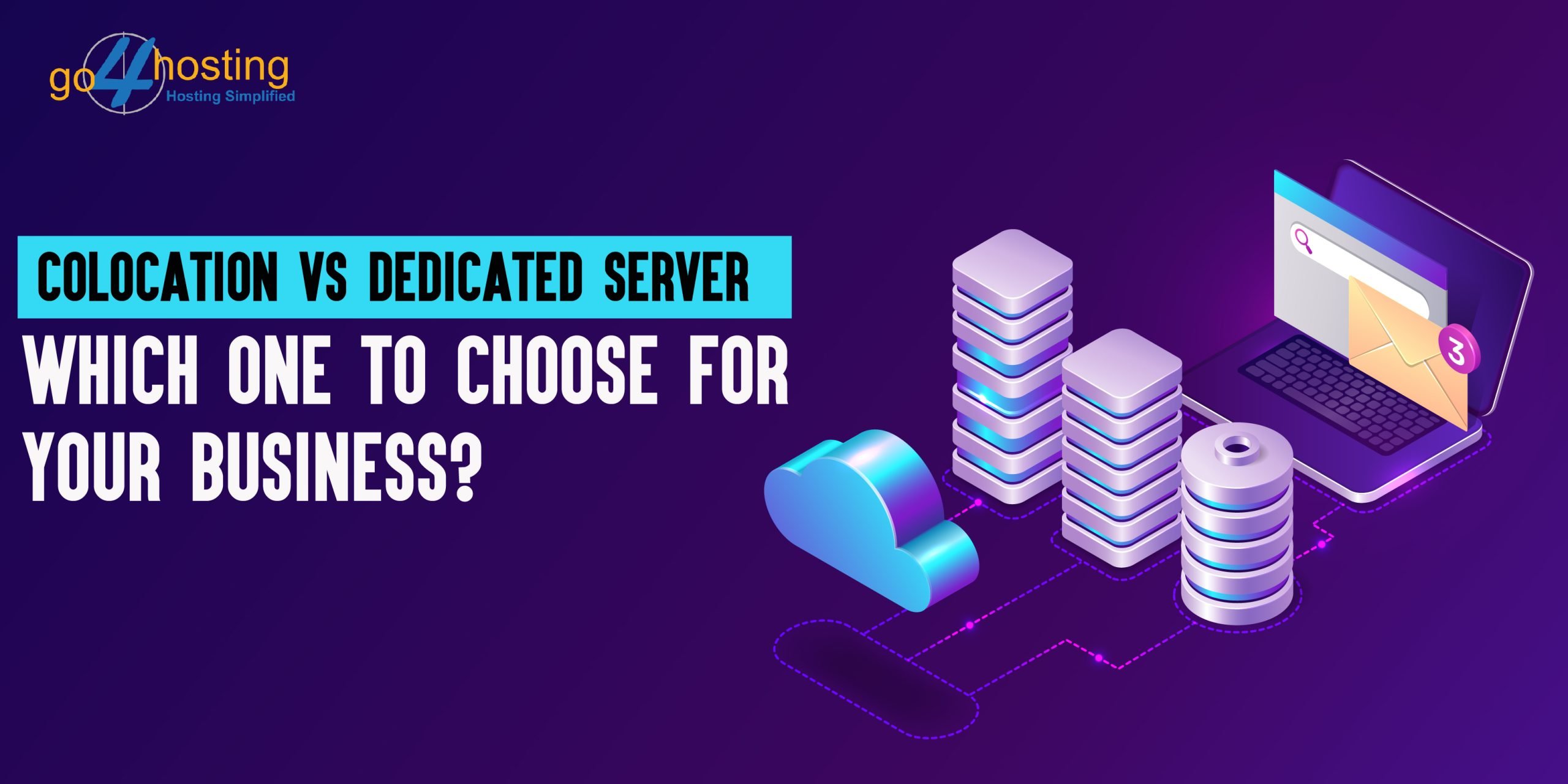Colocation vs Dedicated Server: Which one to Choose for your Business?

Growing businesses often have a hard time deciding the right hosting solution for their applications. Today, web hosting providers offer a wide range of hosting services: from shared to VPS hosting on one end to cloud, colocation and dedicated Server hosting on the other.
In this blog, we will focus on two highly sought-after hosting solutions-colocation and dedicated-that business owners consider when it comes to choosing a highly resilient and secure environment for their applications. So, let’s begin.
Colocation Hosting
Colocation Delhi, NCR is a hosting model where you place your physical servers and other IT infrastructure in a data center facility owned by a third-party. Here, you do not rent or lease a server from a hosting provider; instead, you buy your own servers, transport them to a colocation site and place them in a rented space.
In colocation, your service provider offers a range of amenities-high bandwidth, steady power supply, cooling systems and multi-tier security systems-that create a favorable environment for running your servers. Such an environment would be difficult to create on your own premises.
In colocation, the customer maintains full control over the hardware and software for servers.
Pros and Cons of Colocation Hosting
Pros:
1) Control over Hardware: In colocation, you can build your servers the way you want. You can configure and customize the hardware to suit your workload. This means you can buy the latest CPU and hard disks or choose the amount of RAM you need. In other words, you can bring in the exact specifications you want in your servers and fulfill your price/performance goals.
2) Location of Choice: Each data center facility charges prices that vary depending on the cost incurred in supplying power and other amenities. These prices also depend on geographical location. When you choose a colocation service, the latency of your network depends on how far you are from your service provider. By choosing your colocation facility carefully, you can strike the right balance between network latency and hosting expenses.
3) Private Connection: Colocation lets you leverage the benefit of privacy and speed of on-premises hosting by creating a dedicated Server line between your office and colocation facility. This way, you can use your servers as though they are physically placed at your premises. So, you enjoy the benefit of a private connection along with the security, power supply and environmental control of colocation.
Cons:
In addition to the benefits mentioned above, colocation services in India also have some drawbacks. A colocation service in India requires you to buy the servers, so there are large upfront costs. Then, if you need to replace/upgrade your server, you will need to visit the colocation facility and get it done. Even when done quickly, this can take your business offline for some time.
Besides, many colocation Rack Space providers offer bandwidth and electricity at locked-in prices that you need to pay for in advance. If their prices fall later, you end up paying more than what you normally would.
Dedicated Hosting
Dedicated hosting is a hosting framework where you rent or lease an entire physical server for your exclusive usage. In this case, you do not own the server. Your service provider bears the responsibility of maintaining the servers, installing upgrades and implementing other tasks related to server management.
Pros and Cons of Dedicated Hosting
Pros:
1) No Hardware Investment: Investing in new hardware is expensive. In dedicated hosting, you rely on your service provider to supply the hardware, so you don’t need to buy it. Plus, these service providers refresh their hardware from time to time, so you can avail the latest server technology without keeping a track of the latest in IT infrastructure.
2) Outsourced Server Maintenance: Data center facilities offering dedicated hosting services manage the servers on their own. They do everything right from maintaining the servers and handling hardware failure to upgrading and replacing components. This saves a considerable amount of time and money as your technicians don’t need to get involved at all.
3) Scalability: Growing businesses require a hosting solution to accommodate their dynamic needs. Many medium-sized companies choose dedicated Server hosting to manage growth when their data volume outgrows their on-site resources. Dedicated hosting services allow businesses to upgrade to higher bandwidth levels seamlessly when their website/application experiences peak demand.
Cons:
Dedicated hosting allows limited control over the choice of hardware and software. Agreed, data center facilities offer a range of hosting plans, you still buy off-the-shelf configurations offered by your service provider. That means you cannot optimize your hardware according to your workloads.
Colocation vs Dedicated: The Final Verdict
Colocation is a great solution for those who need near-complete complete over their servers and have the budget to buy hardware. A colocation service in India involves large upfront costs and is more expensive in the short term when compared to a dedicated server.
Plus, you own the equipment, so if you need to modify or add servers, you need to send a technician to get it done. These expenses should be taken into account.
On the contrary, a dedicated server belongs to the service provider and not you. So, if a hardware component fails, all you need to do is to raise a ticket; your service provider will fix it at their expense. A dedicated server is a great solution for businesses that seek superior performance but are reluctant to spend on hardware. Dedicated servers may not involve high upfront fees but their monthly costs are much higher when compared to colocation.





